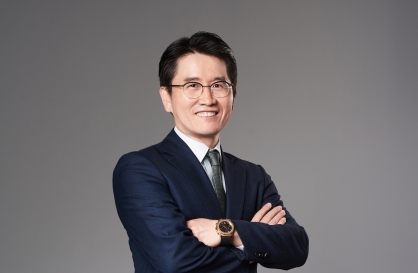[Kim Seong-kon] How can South Korea become a big country?
By Korea HeraldPublished : Aug. 23, 2023 - 05:31

South Korea is a small country in size, yet it has always aspired to be “big.” From slogans that hope for a “greater Republic of Korea” to obsession over a grandiose national image, South Korea has been striving to become and be considered as a country that is larger than life.
In order to achieve this, politicians focused on building fancy facilities or hosting international events that could potentially impress the global audience. Yet it is important to note that what it means to be a big country, in essence, is having a big heart and a caring mindset that nurtures its community and beyond. Pompousness and pretentiousness are not the way.
For example, it takes only about an hour by plane to go from one end to the other of the Korean peninsula. From Seoul to Busan or even Jeju Island will scarcely feel like much of a journey at all. For such a short distance, people in other countries would drive or take a bus or train. In the US, there are several small airports for small propeller airplanes, not huge jet planes if it is a short distance.
In South Korea, however, people ride big luxury jet planes that are equipped with hundreds of passenger seats despite the short distance. More amazing still is that there are 15 passenger airports in the small country. The inscrutable thing is that our politicians keep promising even more new international airports here and there in provincial areas in order to gain votes from the region.
However, it would be a total waste of time, energy and tax money to build international airports in the countryside because no international flights would come there and neither would international passengers except those who reside there. The estuary of Saemangeum, for example, is one of the places where politicians have absurdly promised to build an international airport nearby. However, big international airports are not what make a big country.
The recent Saemangeum fiasco exhibits the failure, incompetence and recklessness of some of our politicians and local government officials. Yet upon hearing the predicament of the jamboree site, many Korean citizens immediately rushed to the rescue to save the failing reputation of their country, otherwise well-known for its warm hospitality.
Business corporations, entertainment companies and colleges joined together in helping young jamboree participants. So did restaurant owners, shop owners and bus drivers. This phenomenon proves the Korean people’s potential strength in times of crisis and could be a factor contributing to making South Korea a big country.
Despite these hints of how Koreans might live up to their potential greatness, there are still many troubling reminders in our culture for how we are not yet living up to these standards.
To take an example: These days, Korean programs for children, such as “Baby Shark” by Pinkfong, “Minipang” by Mini Force and “Pororo,” are enjoying enormous international popularity.
While watching one of the programs recently with my granddaughter, however, I was appalled. One of the main characters pulled out a gun and shot a bad character several times.
In a children’s program, you never show gunfire. We should be more careful about the messages we are sending out when we make children’s programs, especially when we send them overseas.
What might seem fairly minor in the case of a children’s cartoon, however, has disturbing parallels with reality. Recently in the streets of South Korea, random stabbing rampages are occurring more often than ever before.
Individuals who are discontent and furious with society wield knives, killing innocent passersby. These people are giving us a message: “I have led the most miserable life. I wanted to make others’ lives miserable, too.” Plagued by extreme abhorrence, resentment and vengeance, they do not hesitate to assault other innocent people in retribution, mistakenly believing that murdering them is social justice.
Our politicians, who polarize our society by preaching class-consciousness and blind hate toward anyone who has more status than them, are partly responsible for fostering such murderers.
In order to become a big country, we should stop letting ourselves express messages of hate, revenge and resentment, and refrain from blaming others for our miseries. We also should put a stop to the ideological warfare between the left and the right, and between pseudo-progressives and conservatives.
Our politicians, too, should stop factional skirmishes and cooperate with each other instead to deal with the unprecedented international crises that face us today. Only then can South Korea become a truly big country.
The recent summit meeting of the US, Japan and South Korea at Camp David proves that South Korea is starting to have a larger presence in the international community. K-pop, K-drama, and K-technology industries such as Samsung, LG and Hyundai, too, tell the story of our country’s great promise. The last thing we want is for our internal problems to reduce Korea’s potential to something small.
Kim Seong-kon
Kim Seong-kon is a professor emeritus of English at Seoul National University and a visiting scholar at Dartmouth College. The views expressed here are his own. -- Ed.
-
Articles by Korea Herald





![[Weekender] How DDP emerged as an icon of Seoul](http://res.heraldm.com/phpwas/restmb_idxmake.php?idx=644&simg=/content/image/2024/04/25/20240425050915_0.jpg&u=)
![[Herald Interview] Guggenheim Museum makes a push for technology-based art with LG](http://res.heraldm.com/phpwas/restmb_idxmake.php?idx=644&simg=/content/image/2024/04/26/20240426050608_0.jpg&u=20240428114717)




![[Music in drama] An ode to childhood trauma](http://res.heraldm.com/phpwas/restmb_idxmake.php?idx=644&simg=/content/image/2024/04/25/20240425050929_0.jpg&u=)






![[Herald Interview] Mistakes turn into blessings in street performance, director says](http://res.heraldm.com/phpwas/restmb_idxmake.php?idx=652&simg=/content/image/2024/04/28/20240428050150_0.jpg&u=20240428174656)
